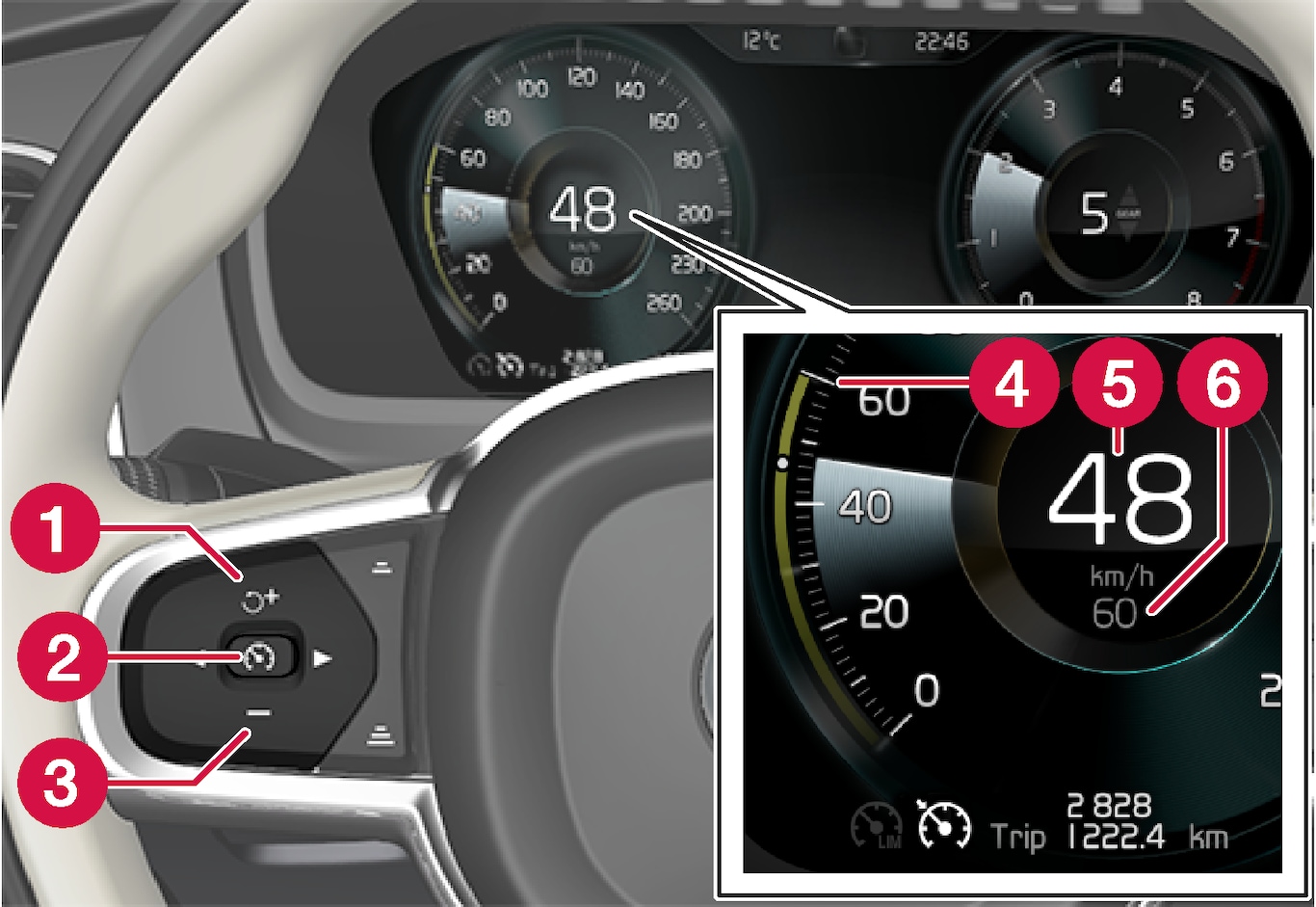Managing speed for the Cruise Control
Setting/changing the stored speed

 (1) or
(1) or  (3):
(3):- Short press: Each press changes the speed in increments of +/- 5 km/h (+/- 5 mph).
- Press and hold: Release the button when the speed indicator (4) has moved to the desired speed
- The speed set after the last button press is stored in the memory.
If the driver increases the car's speed using the accelerator pedal before pressing the steering wheel button  (1), the speed stored will be the car's speed when the button is depressed, provided the driver's foot is on the accelerator pedal at the moment when the button is depressed.
(1), the speed stored will be the car's speed when the button is depressed, provided the driver's foot is on the accelerator pedal at the moment when the button is depressed.
A temporary increase in speed with the accelerator pedal, e.g. during overtaking, does not affect the setting - the car returns to the last stored speed when the accelerator pedal is released.
Using engine braking instead of the foot brake
With Cruise Control, speed is regulated with less frequent application of the foot brake. On a downhill gradient it may sometimes be desirable to start moving a little faster and limit the acceleration by engine braking. In this case the driver can temporarily disable foot brake application by Cruise Control.
Cruise control dependence on drive mode
The cruise control's way of maintaining a speed may vary depending on the selected drive mode2.
Cruise control Eco Cruise
In ECO drive mode the cruise control's accelerations and decelerations become smoother compared to other drive modes to optimise fuel and environmental economy. This can cause the car's speed to be temporarily above or below the set speed.
See supplementary information in "ECO drive mode" under "Cruise control Eco Cruise".
Cruise control Dynamic Cruise
In Dynamic drive mode, the cruise control's accelerations and decelerations are felt more strongly and seem more direct compared to other modes.